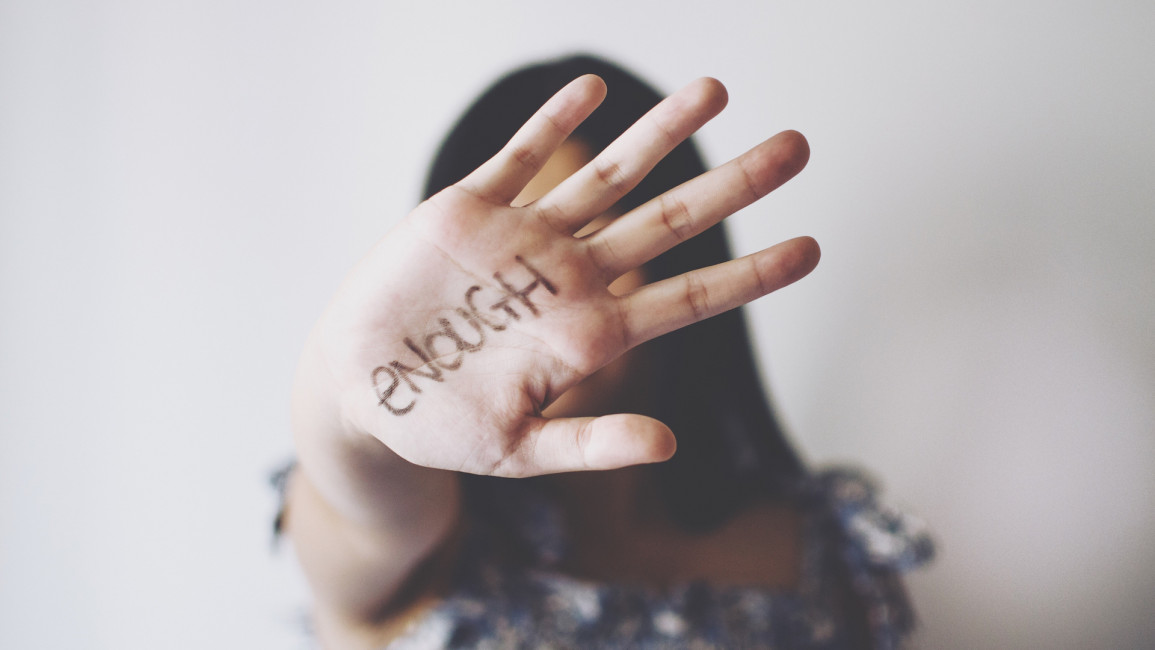Rights group commends Kuwait for new domestic violence law
Although women's rights advocates in Kuwait celebrated a historic new law for protecting survivors of domestic violence, the murder of Fatima Al-Ajmi led many to realise that it came a little too late for her, and all those who have already lost their lives at the hands of their abusers.
The 35-year-old, who was also pregnant at the time, was repeatedly shot by her brother for simply marrying outside her family's community - an act which is classified as an honour killing, and therefore is not punishable under Kuwait's penal code.
Her murder on 9 September sparked outrage in a country which still gives men reduced sentences for killing women who are found guilty of adultery.
But women rejoiced on 20 September, when the Kuwaiti National Assembly passed the Law on Protection from Domestic Violence, which gives "hope" for survivors of abuse, Human Rights Watch said on Tuesday.
The law aims at providing safe houses, a hotline, counseling, legal assistance, and emergency restraining orders against perpetrators trying to contact their victims.
But HRW also warned that while this law provides an important legal framework, it may not go far enough to provide effective help for all women in Kuwait.
The rights group warn that the law will not penalise perpetrators of domestic violence as if it were a stand-alone crime, and fails to include former partners, fiancés, or those in unofficial marriages in the legislation.
Twitter Post
|
"As the tragic killing of Fatima Al-Ajmi has shown, these long-awaited protections are crucial. Kuwait's real test will be ensuring implementation of its new law," said Rothna Begum, Senior Researcher at HRW Women's Rights Division.
"Trust in government institutions for women to seek help will improve on the basis of how authorities actually implement the law. If they provide shelters where women are able to feel safe in and if authorities receive complaints properly, more women will come forward to seek assistance."
The law also creates a national committee made up of representatives from different ministries and civil society, which will be in charge of drafting policies and submitting recommendations to amend or repeal laws that contradict the new bill.
"It will still need to go through the parliament if they want to change the penal code, so even though the committee has a part to play, it will not mean it has the final say," Begum told The New Arab.
Begum says the majority of women in Kuwait don't seek help from police or authorities, so when they decide to flee their homes they will need safe shelters. Before the new law, Kuwait had just one official shelter with untrained staff at the helm of it.
She hopes this new law will mean Kuwait can set up more safe havens and with enough capacity to efficiently tend to those in need.
Dr Alanoud Alsharekh of the London-based thinktank, Chatham House, said that "despite a lack of up to date figures, the problem is widespread, affecting 53.1 percemt of women in Kuwait according to a 2018 study".
She argues that Kuwait's 2016 submission to the Committee on the Elimination of Discrimination against Women (CEDAW) only counted 447 domestic violence cases which had gone through the country’s court system, and only 76 of these ended with a conviction.
"Domestic violence has always been a complex issue in Kuwaiti culture, often tied to norms and beliefs relating to family structures and concepts of guardianship, honour and discipline," Dr. Alsharekh said.
She also warned of a rise of domestic violence rates due to lockdown measures imposed after the outbreak of Covid-19, which rights groups are hoping will be tackled by the government's new legislation.
Follow us on Facebook, Twitter and Instagram to stay connected



